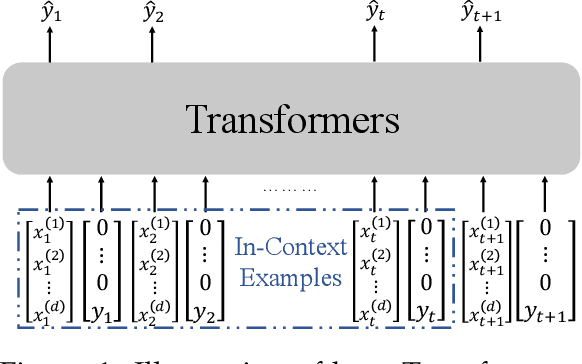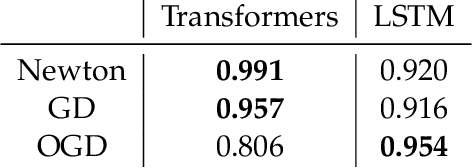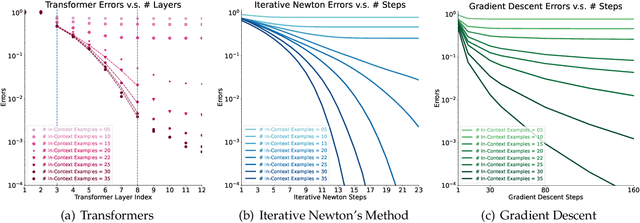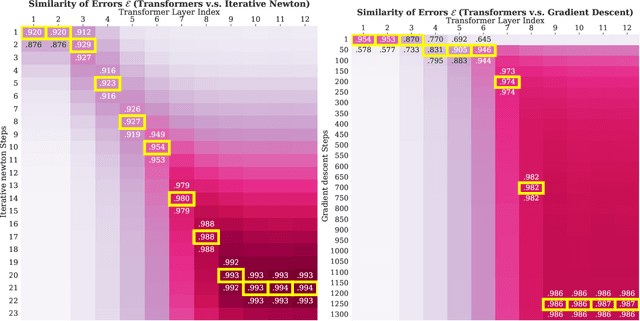Transformers Learn Higher-Order Optimization Methods for In-Context Learning: A Study with Linear Models
Paper and Code
Oct 26, 2023



Transformers are remarkably good at in-context learning (ICL) -- learning from demonstrations without parameter updates -- but how they perform ICL remains a mystery. Recent work suggests that Transformers may learn in-context by internally running Gradient Descent, a first-order optimization method. In this paper, we instead demonstrate that Transformers learn to implement higher-order optimization methods to perform ICL. Focusing on in-context linear regression, we show that Transformers learn to implement an algorithm very similar to Iterative Newton's Method, a higher-order optimization method, rather than Gradient Descent. Empirically, we show that predictions from successive Transformer layers closely match different iterations of Newton's Method linearly, with each middle layer roughly computing 3 iterations. In contrast, exponentially more Gradient Descent steps are needed to match an additional Transformers layer; this suggests that Transformers have an comparable rate of convergence with high-order methods such as Iterative Newton, which are exponentially faster than Gradient Descent. We also show that Transformers can learn in-context on ill-conditioned data, a setting where Gradient Descent struggles but Iterative Newton succeeds. Finally, we show theoretical results which support our empirical findings and have a close correspondence with them: we prove that Transformers can implement $k$ iterations of Newton's method with $\mathcal{O}(k)$ layers.
 Add to Chrome
Add to Chrome Add to Firefox
Add to Firefox Add to Edge
Add to Edge